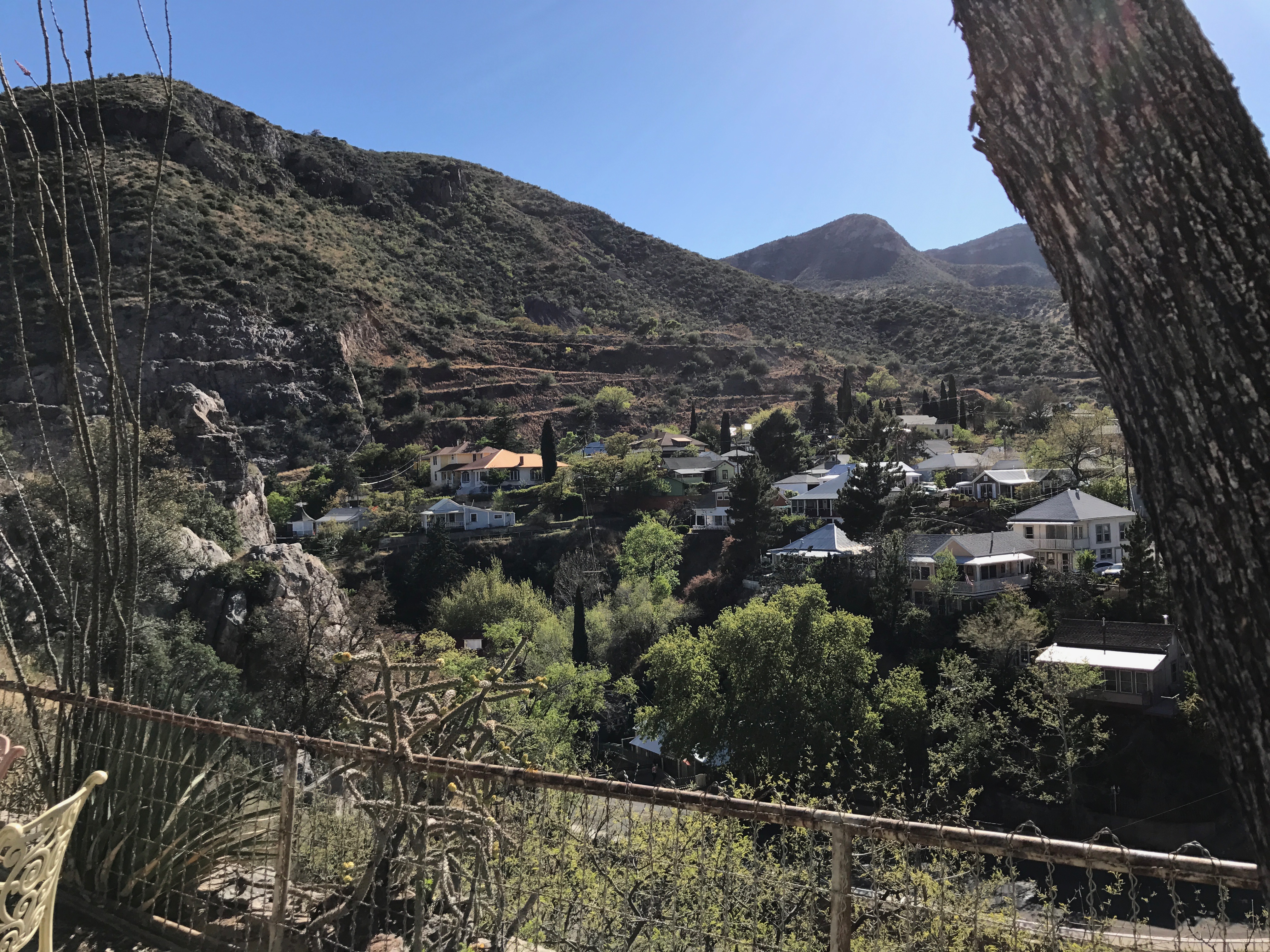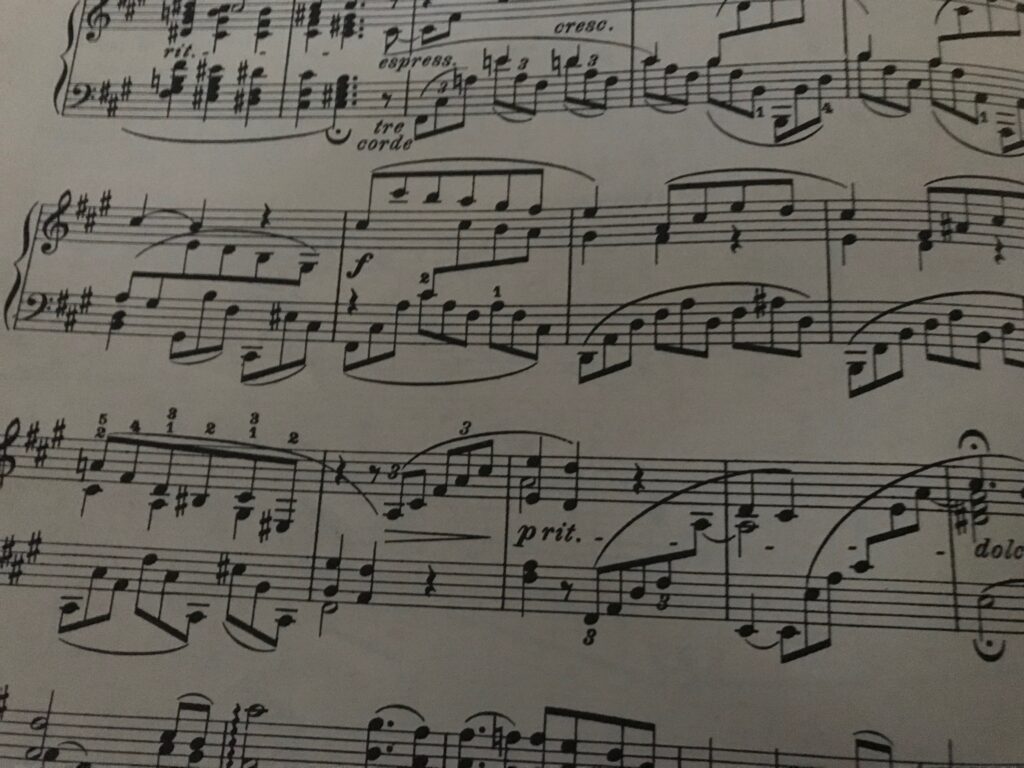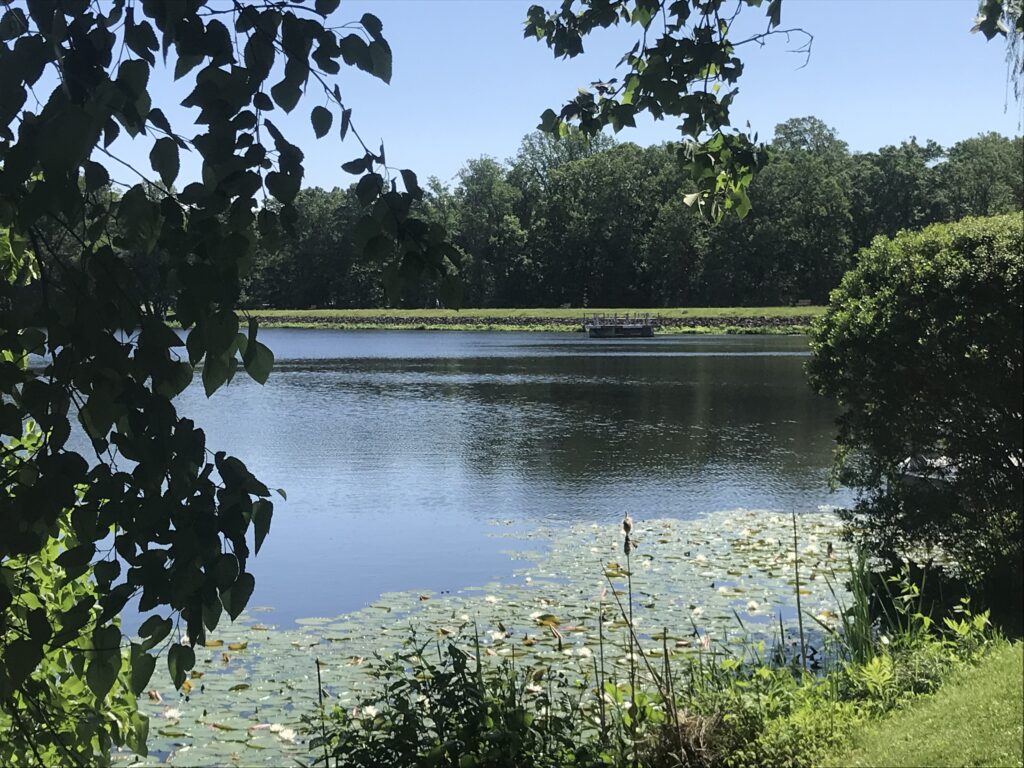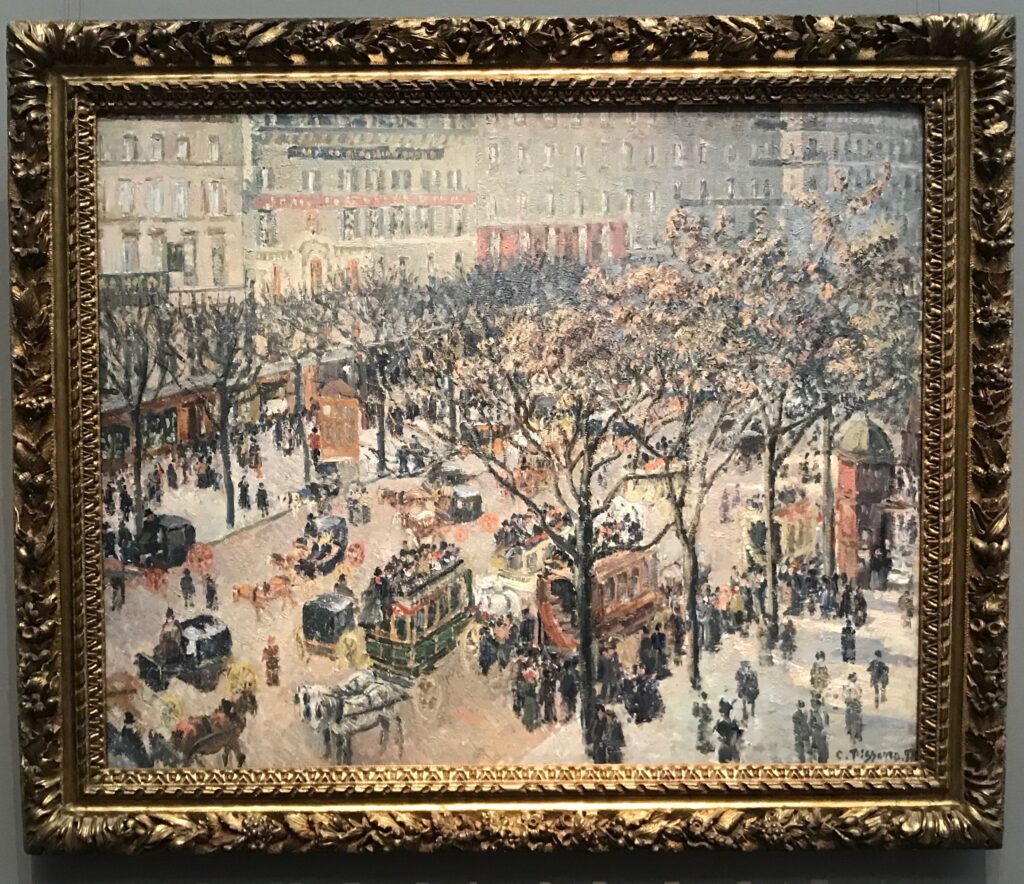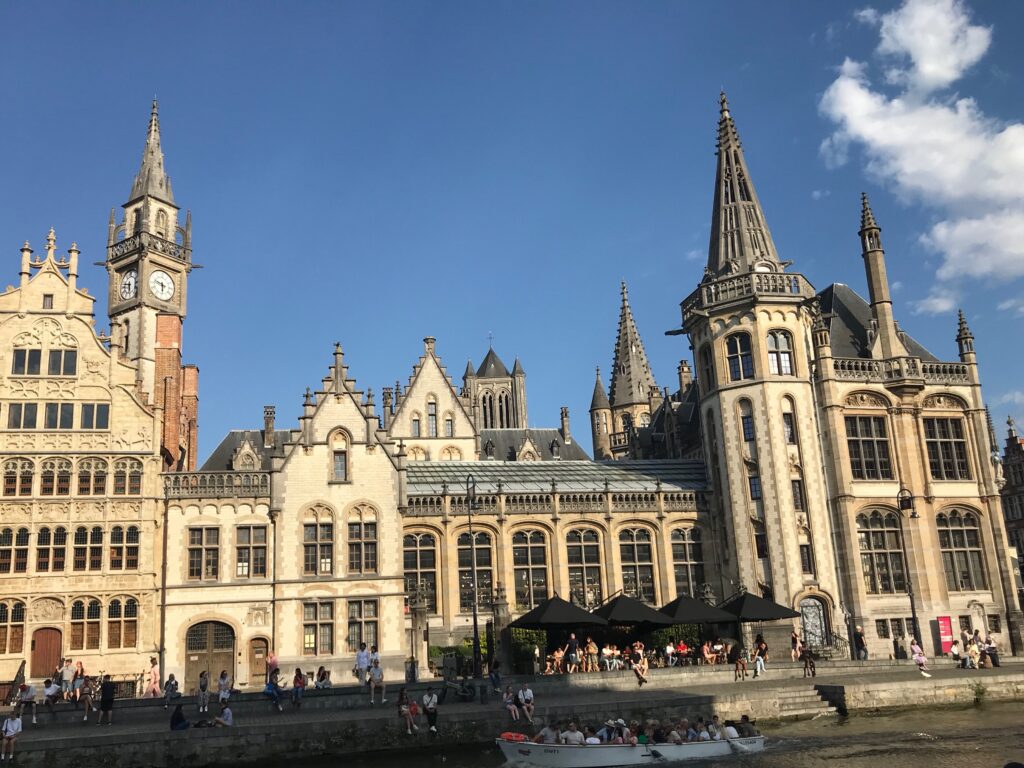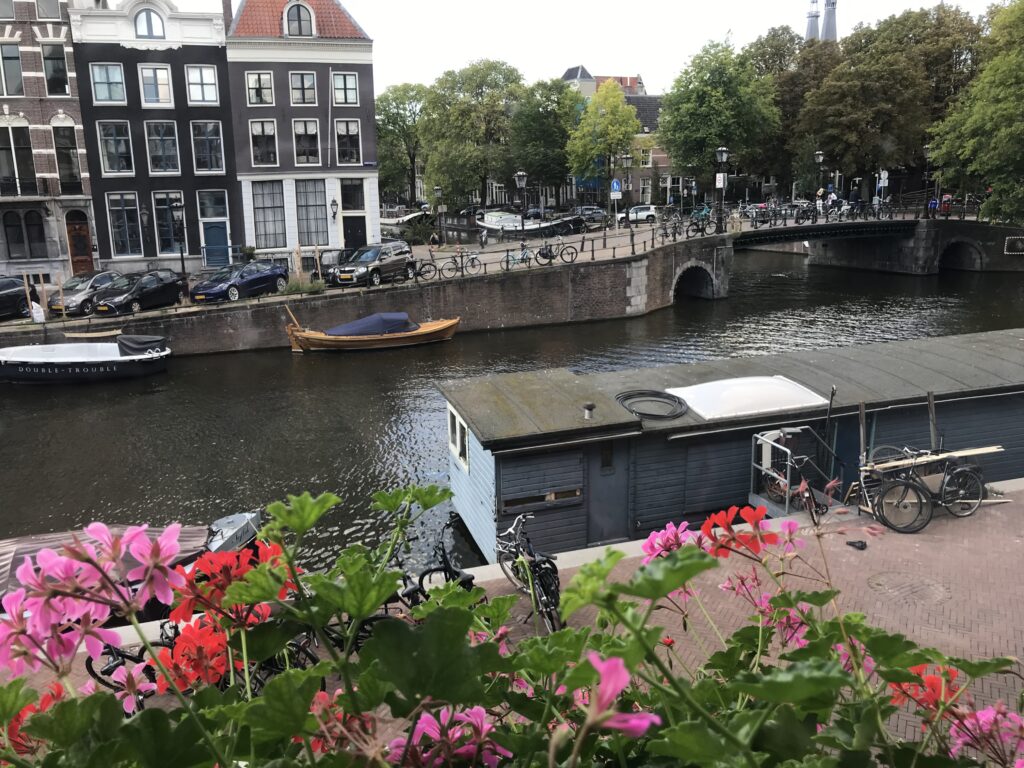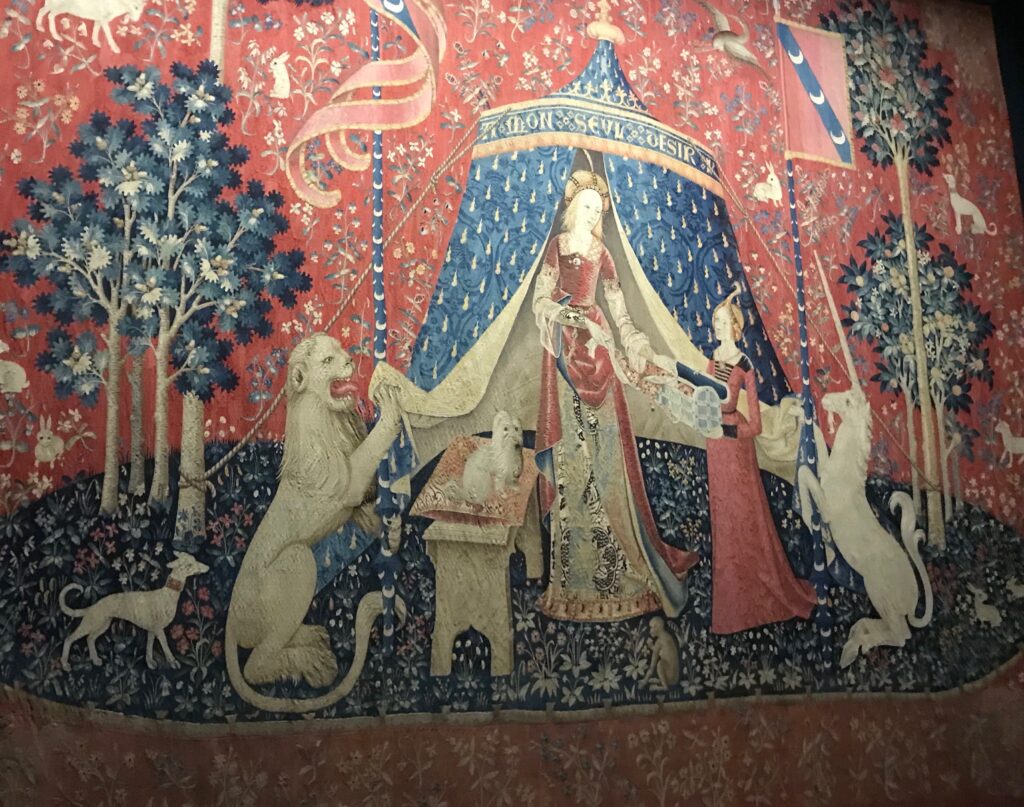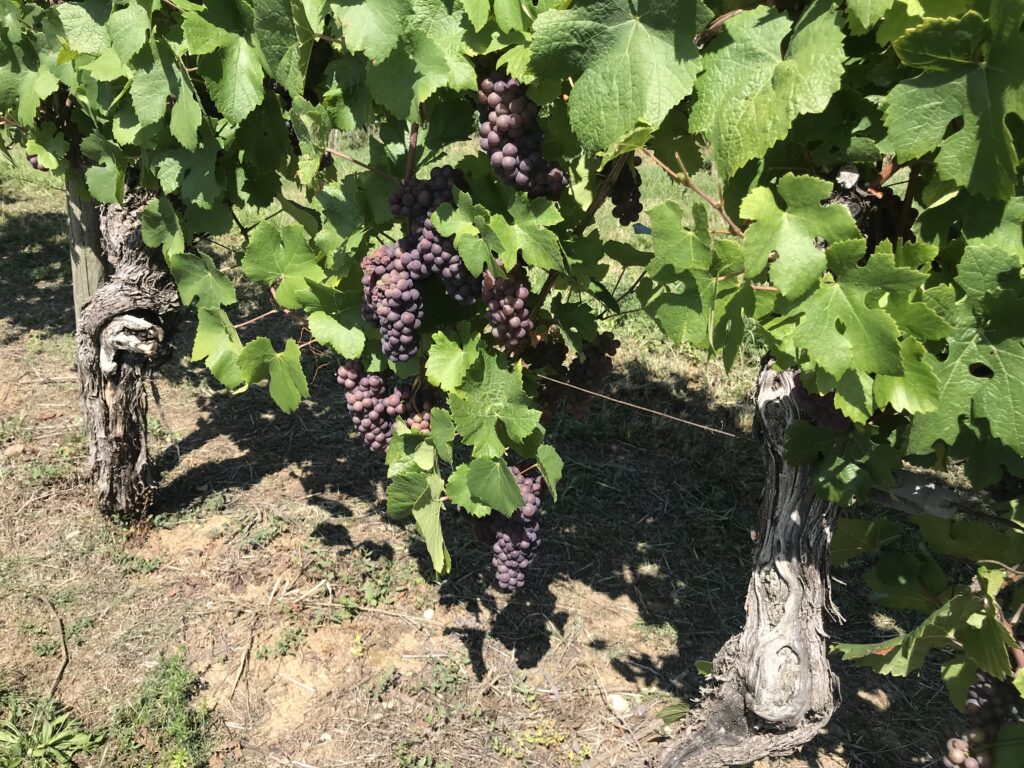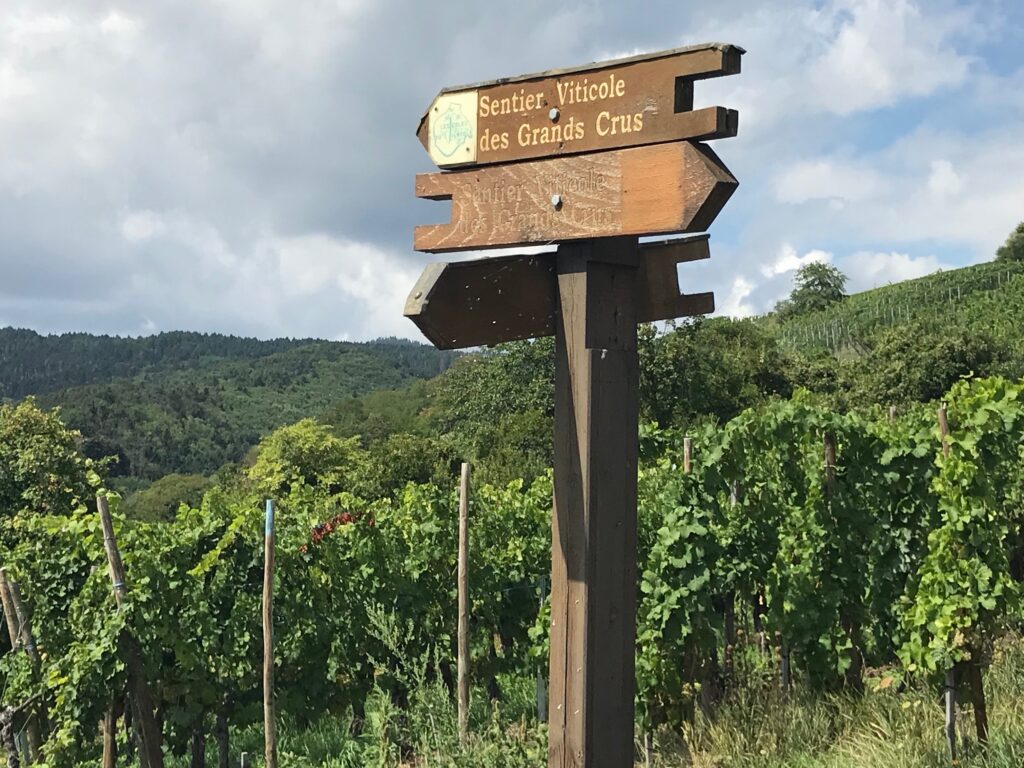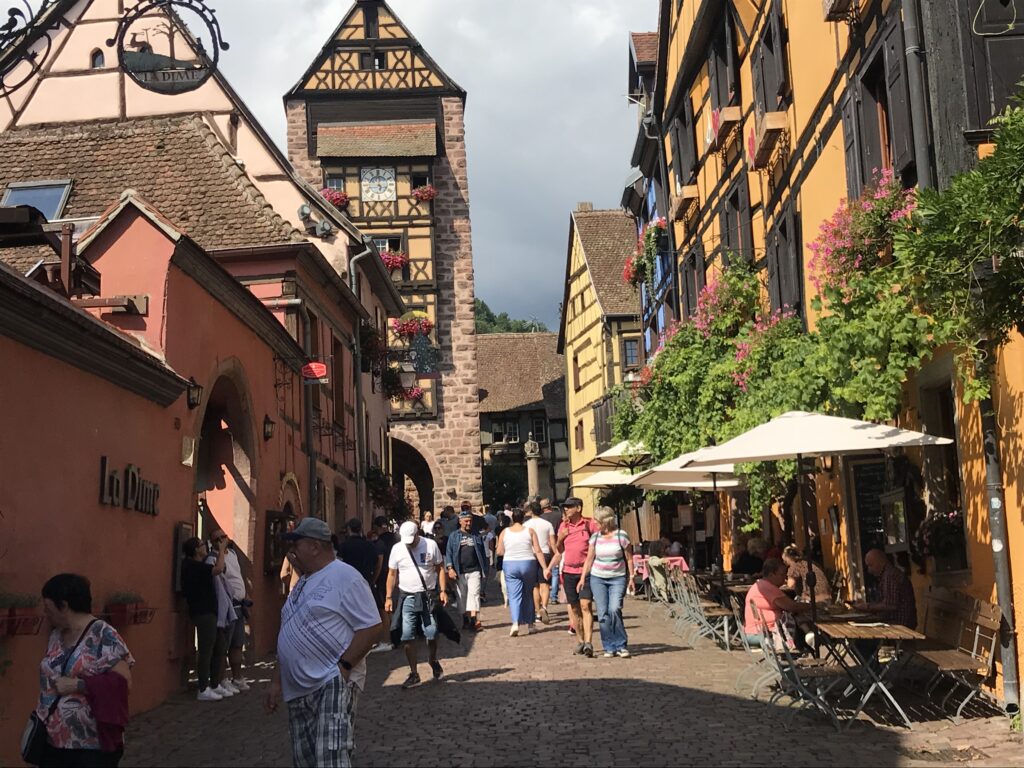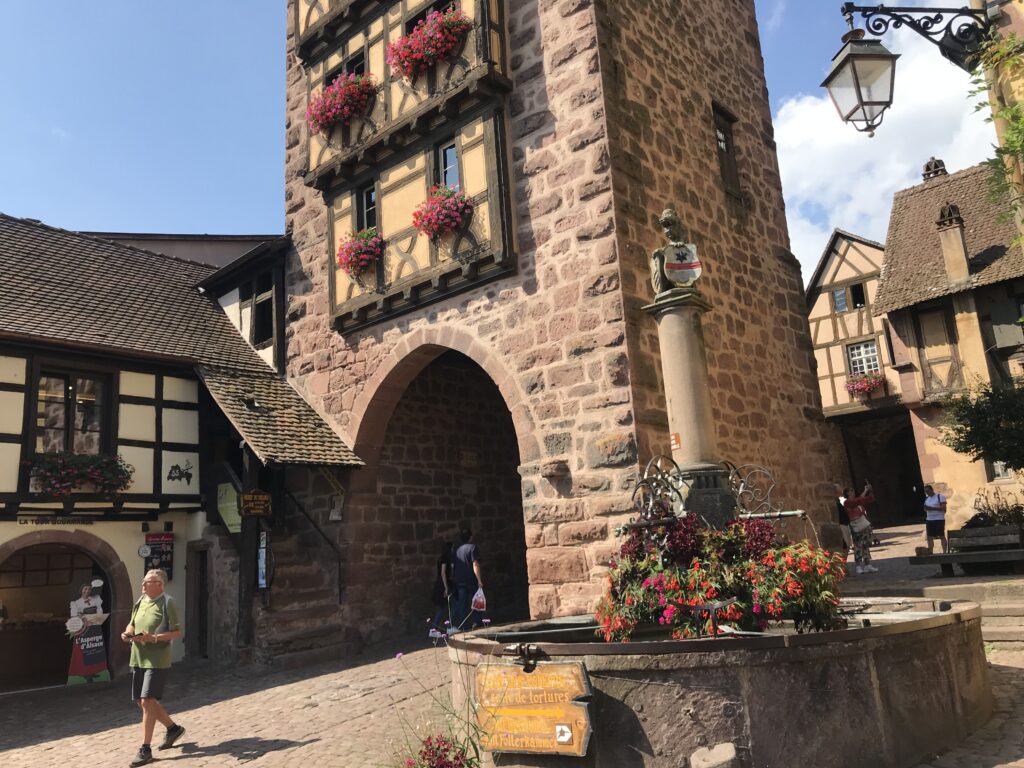Beautiful Bisbee
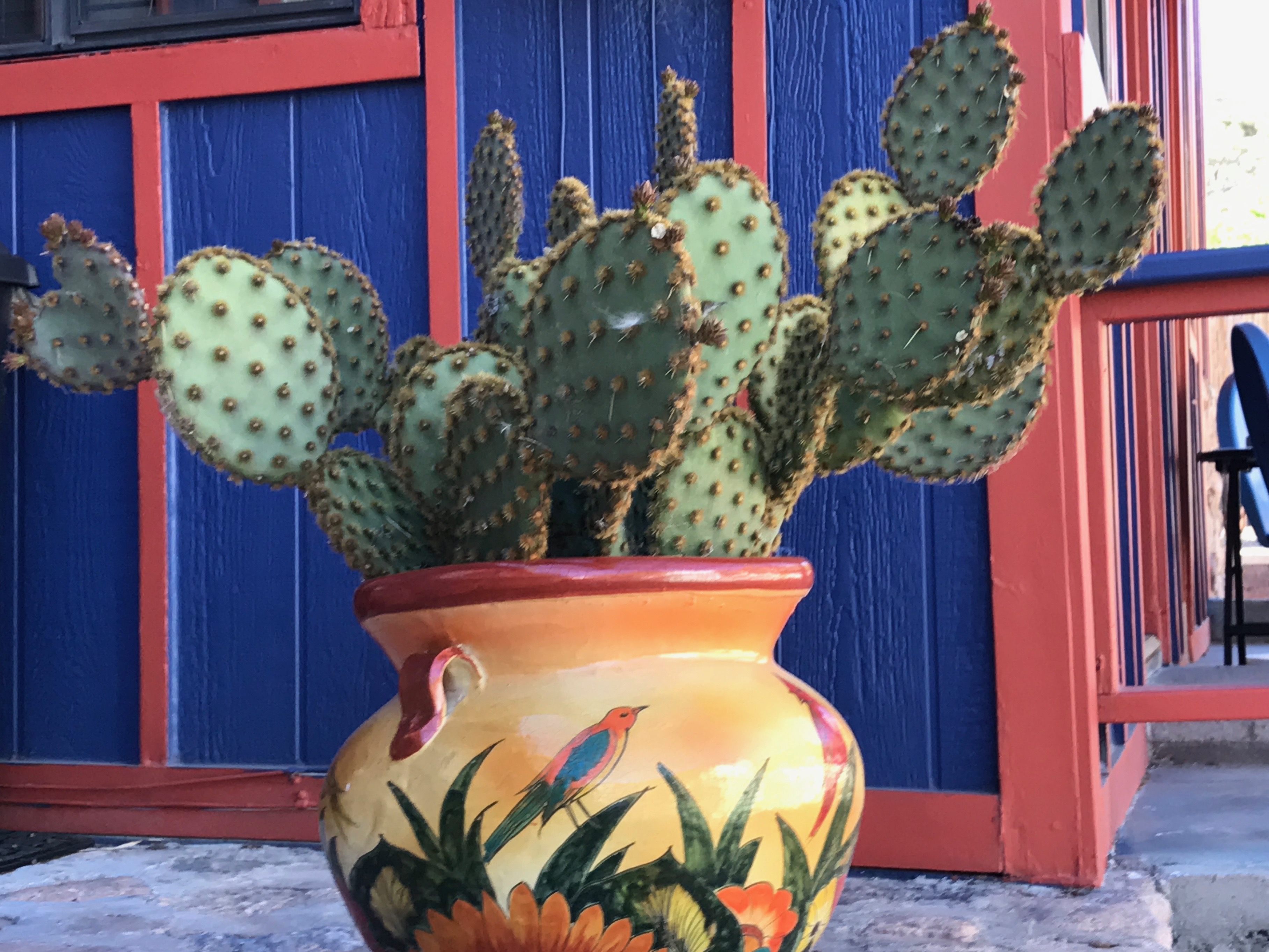
Copper mining made Bisbee, and when the mine closed in 1975, the hippies moved in. They reclaimed the miners’ cabins hanging off the sides of the hills, painted them purple and orange, hung Buddhist prayer flags from the rafters. They made art and sold it. They set pots of cactus on crumbling terraces.
Of course, the tourists came. And why not? It’s a special spot, only miles from the Mexican border, with a sense of community and people who’ve lived here for decades. There are stairs to climb, vistas to admire, and a southern sun to warm the bones.
We leave here today, drive east to the remote Chiricahua Mountains where there will be more scenery and trails and dark night skies. I’m so glad I’ve had a chance to visit Bisbee again.
